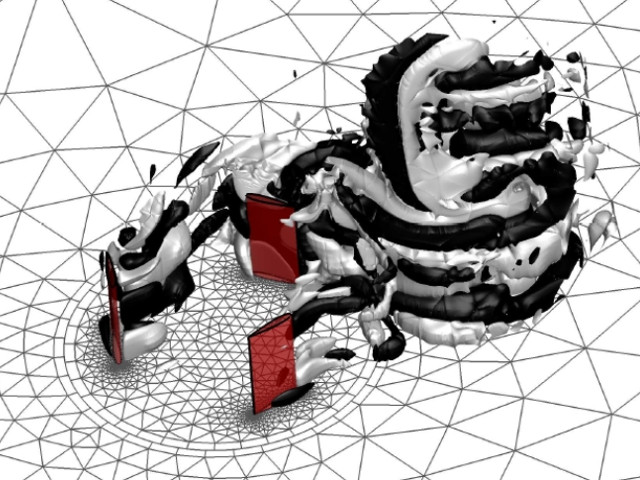Authors
Redondo Calle, Carlos
Advisor(s)
Valero Sánchez, Eusebio; Rubio Calzado, Gonzalo
Research area
Space Science
Affiliated Research Center
Universidad Politécnica de Madrid
In this thesis, a methodology to efficiently solve the multiphase flow through a porous media in the near wellbore region is presented. The mathematical models, the numerical methods and practical implementation details for a functional 2D solver are presented. The methods described in this thesis are the base of an industrial 3D code. Thus, many efforts have been made to validate all the new models to guarantee robustness and stability in the solution without penalising the efficiency. The numerical discretisation is based on the IMplicit Pressure Explicit Saturation (IMPES) approach. While most of the works in the literature rely on Fully Implicit Methods (FIM) to simulate the reservoir scale, this is not suited, in general, for the near wellbore region, where smaller computational and physical times are required, therefore parametric history matching models are preferred to solve this region. However, parametric models present several uncertainties that can affect significantly the estimation of the pressure drop. An accurate and fast simulation of that region is therefore required. Here, a novel and robust implementation of the IMPES scheme is presented, aiming to reduce the large computational cost of the (implicit) pressure equations and to increase the robustness and reliability of the scheme. The method takes advantage of the short physical time steps between iterations, imposed by the explicit saturation solver, to produce a new pressure field at the numerical cost of an explicit scheme using an iterative solver. One, two and three-dimensional numerical experiments are carried out to show the validity of the proposed discretisation. It is shown that the cost of the method is reduced an order of magnitude when compared to the classical IMPES, which outperforms, in a lot of scenarios, the state of the art of current implicit methods.



